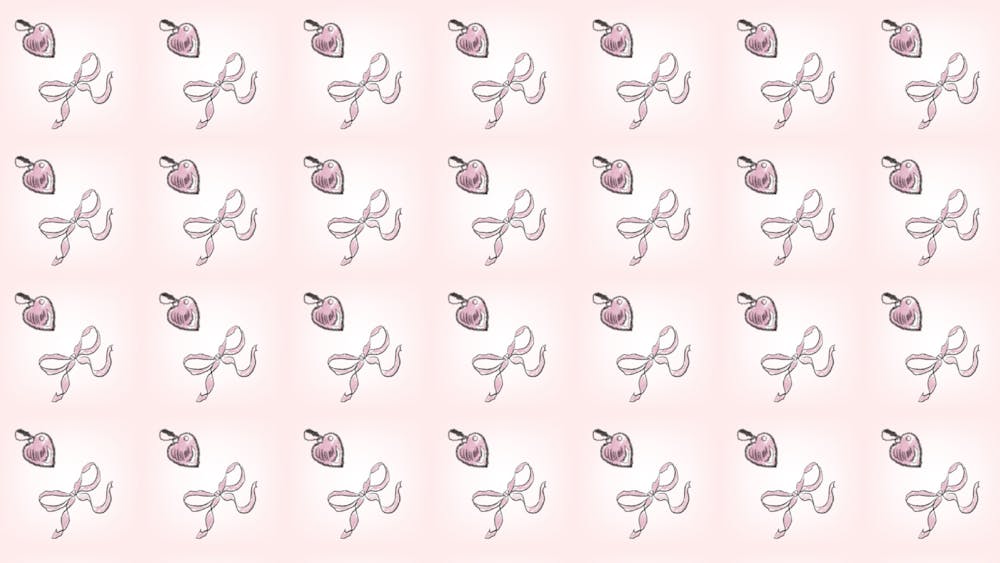My 20th birthday brought many changes — some expected and others unwelcome. When you're born two days before Christmas, there's always a lingering tension in the air as your family packs every long-standing holiday tradition into 48 hours — and crams your birthday on top of it all.
But every year, I yearned for the tension to come around because that meant it was my birthday. I can recall the excitement, the restlessness and the eagerness I always felt to put another year behind me and continue growing up — except when I turned 20 last December.
For the first time, I wasn't happy about getting older. Don't get me wrong — I'm fully aware 20 is not considered old and in hindsight, it seems ridiculous to complain about it, but it's not the age itself that bothers me. It's the unwarranted shift that inexplicably follows once a girl turns 20. Because once she's 20, she's a woman.
You see, girlhood is over for me. I am now in the beginning stages of what everyone calls "womanhood," an unpredictable experience that will supposedly grant me the wealth of opportunities girlhood lacked, like childbirth, pap smears and menopause.
But now that I’m a "woman," I look in the mirror and wonder how society could expect me to part with my teenage years so suddenly.
Although I now have more agency over my life than I did in the past, being a teenage girl comes with a unique sort of freedom that womanhood lacks — because you are just that: a girl. A girl whose identity is perfectly packaged by the media, whose stories are told and retold on her own behalf. A girl whose identity can be molded like air-dry clay, whose shape can be changed however others please. A girl who can learn from her mistakes before they become regrets.
My body will never be as tight, and my skin will never be as smooth as it was at 15. Give me a few more years, and men will soon regard me with disgust and discard me as overused. Fewer and fewer books will be written about the defining challenges I endured in my so-called "prime," and one day, I will donate all my miniskirts to Goodwill.
But I'm not ready to part with the hallmark events that defined my girlhood. I know there's so much I have to learn and unlearn; so many people I have to meet who will destroy or revolutionize my life. Despite the lifetime of possibilities that womanhood brings, I still want to gossip, shop and fight with my mom. I want drama. I want uncertainty. I shouldn't be expected to have a plan. Because I'm still just a girl.
Girls will be girls
Like many young women my age, I've become accustomed to a special "girl" lingo that has infiltrated my everyday speech. For instance, when I go to the kitchen and grab a cheese stick, three grapes, a slice of turkey and exactly six dark-chocolate almonds at 7 p.m., it's no longer a snack, but rather, an entire "girl dinner."
When I pay for my coffee in cash, it doesn't affect my financial well-being because, according to "girl math," spending cash doesn't impact my bank account. "Girl’s girl," "clean girl," "cool girl" and even "girly girl" are all different gendered terms to categorize our personalities, although the singularity of the female sex remains the most defining characteristic.
"I think right now, we're seeing a very big backlash against modern-day feminism," said Raeanna Kilby, a graduate student studying psychology. "I can definitely see this feeling in modern feminism where there's a kind of pressure to be super successful (as a woman). You have to desire to be a CEO, and you have to desire to be the same as a man, rather than be equal and have equal opportunities and desires and passions that are respected."
The resurgence of girlhood undercuts the traditional societal pressure on women to utilize the agency gifted to us by older feminists, but the catalyst behind the shift remains a mystery. I am no stranger to these changes either — while I often say now that I’m "just a girl," I can remember a time when I too rejected stereotypical aspects of femininity.
There was the usual love-hate relationship with the color pink, the monumental discarding of my Barbie dolls and the purging of my beloved stuffed animals. But now, at 20, I've revived these buried girlish roots.
My closet is splashed with shades of pink. Instead of Barbies, I now spend my money on Sonny Angel figurines and Sanrio trinkets while a growing collection of Squishmallow plushies inhabits my bed at all times. And I'm not alone — why is this wave so poignant among young women in today's society
"'Inadequacy' is probably the best word for how people feel about feminism right now," Kilby said. "It feels kind of out of touch for a lot of people, especially after we've seen the capitalization of it and the marketing of it and so many branches kind of pushing this idea."
Kilby believes that these feelings of regression have stemmed from women's realization of the value in "choice feminism" — the popular belief that any choice a woman makes is inherently feminist. Essentially, rather than only striving for powerful, traditionally male-dominated roles, many feminist young women are taking pride in buying tchotchkes, indulging in pink and cultivating stuffed-animal collections.
"A lot of women are kind of rejecting this idea that womanhood means that they have to be a man," Kilby said. "They (reject) having to have knowledge on mechanics. They (reject) having to emulate certain confidence and goals they just don’t want to do or don’t feel a calling towards."
While the "just a girl" trend might serve as a counterproductive way to cultivate feminist awareness online, the deceptively simple "girl" trends have been criticized for infantilizing and trivializing womanhood.
"I think this trend kind of originated as a pun to get back at the whole 'Boys will be boys' phrase," Kilby said. "Whereas women are now using 'I'm just a girl' as a way of shifting responsibility in a similar way, blaming these kinds of societal roles and expectations as a reason for their lack of knowledge or skills, rather than something intrinsically inadequate about themselves or about women in general."
Navigating girlhood as a woman
Maybe I'm a contributor in this ongoing regressive shift. Maybe I've taken comfort in the seemingly helpless role that this trend of "just being a girl" justifies. Maybe I do want to stave off adulthood.
But it's not responsibility that frightens me. I live on my own. I can properly dice an onion and parallel park, even on a Saturday night in downtown Phoenix. I understand tax forms. I've traveled to new cities alone, and I am never late to long-standing appointments.
But past all my maturity, carefully constructed walls and thick layers of skin lies the girl who's always lived inside me. She holds my earliest memories, hopes and wildest dreams in the palms of her hands. She comes out as I drive through neighborhoods we once resided in, smiling wistfully as each familiar landmark flies by. Forever pure and unbothered, she reminds me of simplicity, of a time before 20. She must be nurtured, loved and protected at all costs because she's all I have left. I'm not ready to let her go.
"I think for women and men, wanting to hang on to elements of your childhood is understandable," said Aviva Dove-Viebahn, an assistant professor in the film and media studies program. "Your 20s can be a particularly fraught time because suddenly, you're being asked to be a responsible adult (when) you don’t feel like a responsible adult."
Dove-Viebahn, who previously taught a course on women, power and media, said the "just a girl" trend is ultimately about shirking responsibility. Because everyday life is naturally plagued by chaos, many young women could be turning to girlhood as a coping mechanism for the natural chaos of everyday life.
"On an individual level, it makes sense that women or anyone really would have these feelings, right?" she said. "(They think) the world is too much. It's too crazy. 'I don't wanna have to deal with it, so I'm going to just say I'm not responsible because I’m just a girl and I don’t want to have to think about these things.'"
Although the trend presents itself as silly and unserious on the surface, Dove-Viebahn said girls should be wary of its possible repercussions.
"Once that starts to filter broadly into popular culture and starts to become an assumption that young women are still girls and are more irresponsible, that's when it starts to become a problem," she said. "That's when we start to get problematic backlash."
But some men have already started to mark their territory in the female-dominated, "just a girl" corner of the internet by mocking our complicated and ever-evolving relationship with girlhood.
You are allowed to disagree. You are free to hate the color pink, criticize us when we drive poorly and laugh as we justify our purchases through irrational loopholes. But please, do not belittle our precious identities just because you do not understand them.
Let us keep the girls inside of us alive because without them, we may never properly grow up.
They are not yours for the taking.
Edited by Camila Pedrosa, Savannah Dagupion and Madeline Nguyen.
This story is part of The Best of ASU, which was released on April 30, 2024. See the entire publication here.
Reach the reporter at lmesqui2@asu.edu and follow @leahmesquitaa on X.
Like State Press Magazine on Facebook, follow @statepressmag on X and Instagram and read our releases on Issuu.




